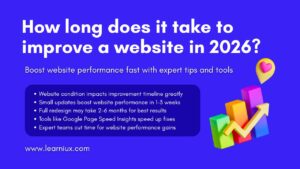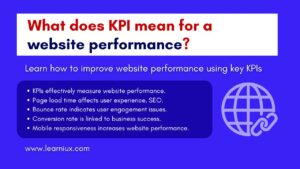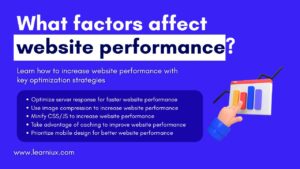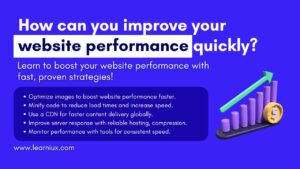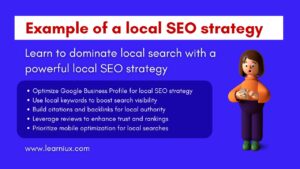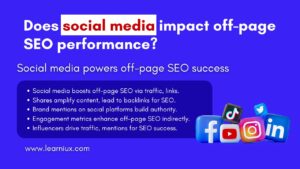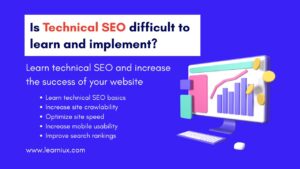Introduction
Off-page SEO is a key pillar of search engine optimization that focuses on off-page activities to increase a website’s authority, credibility, and visibility. Unlike on-page SEO, which is concerned with optimizing the content, meta tags, and technical elements of a website, off-page SEO involves external efforts that demonstrate the relevance and credibility of a website to search engines. These efforts include building high-quality backlinks, utilizing social media, getting brand mentions, and participating in local SEO practices. In today’s digital landscape, off-page SEO is a powerful strategy for improving search engine rankings and driving organic traffic. Search engines like Google rely on off-page signals to measure a website’s reputation, making it an essential component for businesses and individuals aiming to establish a strong online presence.
The importance of off-page SEO lies in its ability to build a network of trust and authority around a website. When reputable websites link to or mention a site, it acts as a vote of confidence, signaling to search engines that the content is valuable and trustworthy. This external validation helps websites rank higher in search results, especially for competitive keywords. Off-page SEO is not just about links; it includes a variety of activities, from social media engagement to influencer collaborations, all of which contribute to a website’s overall digital footprint. As search engines evolve, the principles of off-page SEO continue to change, ensuring its relevance in modern digital marketing strategies.
Why Off-Page SEO is Important
Off-page SEO is important because it directly affects how search engines perceive a website’s authority and relevance. Search engines like Google use complex algorithms to rank websites, and off-page factors play a key role in this calculation. When a website receives backlinks from authoritative sources, it signals to search engines that the site is a trusted source of information. These backlinks act as endorsements, increasing the website’s chances of ranking higher in search results. Additionally, off-page SEO helps build a brand’s reputation on the internet, which indirectly impacts user trust and engagement.
Beyond backlinks, off-page SEO includes social signals, brand mentions, and local citations, all of which contribute to a website’s visibility. For example, when users share content on platforms like Facebook, Instagram, or LinkedIn, it increases the reach of the content and drives traffic back to the website. This traffic, combined with positive engagement, strengthens a site’s authority in the eyes of search engines. Off-page SEO also helps websites stand out in a competitive landscape. Without a strong off-page strategy, even the most well-optimized website can struggle to rank against competitors with strong external signals. In short, off-page SEO is the bridge that connects a website to the wider digital ecosystem, keeping it relevant and competitive.
Building High-Quality Backlinks
Backlinks are the cornerstone of off-page SEO. They are links from external websites that point to your site, and they serve as a major ranking factor for search engines. However, not all backlinks are created equal. Search engines value quality over quantity, meaning that a few links from authoritative, relevant websites are much more valuable than numerous links from low-quality or spammy sites. For example, a backlink from a well-known industry blog or reputable news outlet carries significant weight, as it indicates trust and relevance. To build high-quality backlinks, focus on creating valuable content that naturally attracts links, such as in-depth guides, research papers, or infographics.
Strategies for gaining backlinks include guest posting, where you contribute articles to reputable websites in your niche, and outreach campaigns, where you pitch your content to bloggers or journalists. Collaborating with industry influencers or participating in online communities can also lead to organic backlinks. For example, creating a comprehensive resource that others in your industry find useful can lead to natural link building as others reference your work. It’s also important to regularly monitor your backlink profile to ensure that low-quality or toxic links aren’t hurting your rankings. Tools like Ahrefs or Moz can help identify and disavow harmful links, keeping your off-page SEO strategy clean and effective.
Social Media as an Off-Page SEO Tool
Social media has become an integral part of off-page SEO, although it is often debated whether it directly affects search rankings. Social signals like likes, shares, and comments may not directly affect search engine algorithms, but they do increase a website’s reach and engagement. When content is widely shared on platforms like X, Instagram, LinkedIn, or Facebook, it increases the likelihood of attracting backlinks and driving traffic. For example, a viral post on X can increase visibility, which in turn encourages other websites or blogs to link to the original content. This indirect effect makes social media a powerful tool for off-page SEO.
To maximize the impact of social media on off-page SEO, focus on creating shareable content that your target audience will enjoy. This could include engaging videos, insightful blog posts, or interactive infographics. Consistency is key, maintaining an active presence on social platforms helps build a loyal audience that regularly interacts with your content. Interacting with followers by responding to comments or participating in discussions also increases brand visibility. Additionally, collaborating with influencers or running social media campaigns can increase the reach of your content, further strengthening your off-page SEO efforts. By integrating social media into your strategy, you create a ripple effect that increases your website’s authority and traffic.
The Role of Brand Mentions
Brand mentions, whether linked or unlinked, are a powerful off-page SEO signal. When a reputable website, blog, or influencer mentions your brand, it signals to search engines that your business is trustworthy and relevant. Even if the mention doesn’t involve a direct link, it contributes to your brand’s online reputation. For example, a positive review of your product on a popular blog or a mention in a podcast can increase your credibility. Search engines like Google use advanced algorithms to detect these mentions, often referred to as “implied links,” and include them in their ranking calculations.
To encourage brand mentions, invest in public relations and influencer marketing. Reach out to journalists, bloggers, or industry leaders to share your story or expertise. Creating high-quality content like case studies or thought leadership articles can also naturally attract mentions. Interacting with online communities like forums or social media groups is another way to increase brand visibility and gain mentions. For example, participating in discussions on platforms like Reddit or Quora can lead to organic mentions of your brand. Monitoring mentions using tools like Google Alerts or Mentions allows you to track and respond to conversations about your brand, further enhancing your off-page SEO efforts.
Local SEO and Off-Page Efforts
For businesses targeting a local audience, off-page SEO plays a crucial role in improving visibility in local search results. Local SEO relies heavily on external signals such as citations, reviews, and local backlinks. A citation is a mention of a business’s name, address, and phone number (NAP) on directories such as Google Business Profile, Yelp, or the local Chamber of Commerce website. Consistent NAP information on these platforms strengthens a business’s local authority and improves its chances of ranking in local search results such as Google’s Local Pack.
Encouraging positive customer reviews is another essential off-page SEO tactic for local businesses. Reviews on platforms such as Google, Yelp, or Trustpilot act as social proof, influencing both potential customers and search engines. Responding to reviews, whether positive or negative, shows engagement and builds trust. Additionally, building local backlinks from community websites, local news outlets, or regional blogs can increase a business’s local relevance. For example, sponsoring a local event or partnering with a nearby charity can earn valuable backlinks and mentions. By prioritizing local off-page SEO, businesses can dominate their regional market and attract a larger crowd.
Evolving Trends in Off-Page SEO
The landscape of off-page SEO is constantly evolving as search engines improve their algorithms and user behavior changes. One emerging trend is the increasing importance of user-generated content, such as reviews, forum posts, and social media discussions. Search engines are placing more importance on authentic, user-driven signals as indicators of a website’s trustworthiness. For example, a business with numerous positive reviews on Google or an active discussion on platforms like Reddit is likely to be viewed as more trustworthy. Encouraging customers to leave reviews or participate in online communities can enhance your off-page SEO strategy.
Another trend is the rise of voice search and AI-powered search technologies. As more users rely on voice assistants like Siri or Alexa, off-page SEO needs to be optimized to accommodate conversational queries. This includes getting mentions in content that answers common questions or appears in “People Also Ask” sections. Additionally, off-page SEO is taking shape with a focus on EAT (Expertise, Authority, Trustworthiness). Search engines prefer websites that demonstrate expertise through high-quality backlinks, authoritative mentions, and credible content. Staying ahead of these trends requires constant learning and adaptation so that your off-page SEO efforts remain effective.
Common Mistakes to Avoid in Off-Page SEO
Off-page SEO offers tremendous opportunities, but some mistakes can undermine your efforts and hurt your rankings. A common mistake is chasing low-quality backlinks, such as those from spammy directories or paid link schemes. These practices violate search engine guidelines and can lead to penalties, causing your website to drop in rankings. Instead, focus on acquiring organic, high-quality backlinks from reputable sources. Another mistake is neglecting social media engagement. Failing to maintain an active presence or ignoring user comments can limit the reach of your content and weaken your off-page SEO.
Ignoring negative reviews or feedback is another pitfall. Negative reviews, if left unaddressed, can damage your brand’s reputation and deter potential customers. Responding professionally and resolving the issue can turn negative feedback into a positive signal for both users and search engines. Additionally, inconsistent NAP information in local directories can confuse search engines and hurt local SEO performance. Regularly auditing your citation and backlink profiles ensures that your off-page SEO strategy remains clean and effective. By avoiding these mistakes and focusing on ethical practices, you can create a sustainable off-page SEO strategy that will lead to long-term success.
Conclusion
Off-page SEO is not only still relevant but also thriving in the ever-changing world of search engine optimization. It serves as a vital link between a website and the wider digital ecosystem, helping businesses build authority, credibility and visibility. By focusing on high-quality backlinks, leveraging social media, getting brand mentions and optimizing for local SEO, websites can significantly improve their search engine rankings. As search algorithms evolve, staying up to date with trends like user-generated content and EAT principles is essential to maintaining a competitive edge. Avoiding common mistakes like low-quality link building or ignoring reviews ensures that your off-page SEO efforts produce lasting results. With a strategic and ethical approach, off-page SEO remains a cornerstone of digital marketing success, driving traffic, trust and growth for businesses of all sizes.
FAQs
What is Off-Page SEO and why is it important?
Off-page SEO refers to actions taken outside of a website to improve a website’s search engine rankings, such as building backlinks, participating in social media, and gaining brand authority. It signals to search engines how trustworthy and authoritative a website is in its niche. High-quality backlinks from reputable sites act as endorsements, increasing a website’s credibility. Social media engagement increases content reach, driving traffic and potential links. Brand authority, even without links, increases a site’s reputation. Off-page SEO complements on-page efforts, ensuring that a website stands out in competitive search results. Furthermore, even well-optimized sites can struggle to rank high. It creates a digital ecosystem that strengthens a website’s relevance. Ultimately, off-page SEO is crucial for establishing long-term online authority.
How do backlinks contribute to off-page SEO?
Backlinks are links from external websites pointing to your site, which serve as a key component of off-page SEO. They act as a vote of confidence, signaling to search engines that your content is valuable and trustworthy. High-quality backlinks from authoritative, relevant sites carry more weight than multiple low-quality links. For example, a link from a reputable industry blog carries more credibility than one from a spammy directory. Gaining backlinks through guest posting, outreach, or creating shareable content strengthens off-page SEO. Search engines like Google use backlinks to assess a site’s authority and relevance. However, toxic or irrelevant links can hurt rankings, so it’s important to monitor your backlink profile. Tools like Ahrefs can help identify and disavow harmful links. A strong backlink strategy boosts off-page SEO and drives organic traffic.
Can social media significantly impact off-page SEO?
Social media has a significant impact on off-page SEO, although its direct impact on rankings is indirect. Sharing content on platforms like Facebook, Instagram, or LinkedIn increases visibility and drives traffic to your website. This exposure can lead to organic backlinks when other people share or reference your content. Interacting with followers through comments or discussions builds brand awareness, which is an important off-page SEO factor. Social signals, such as shares and likes, indicate the popularity of the content, which search engines can consider. Creating shareable content, such as videos or infographics, increases reach and encourages engagement. Collaborating with influencers can further increase visibility and attract links. An active social media presence strengthens your digital footprint, supporting off-page SEO. Consistent activity and interaction with your audience are essential to maximizing this impact.
What role do brand mentions play in off-page SEO?
Brand mentions, whether linked or unlinked, are an important off-page SEO signal. When reputable websites, blogs, or influencers mention your brand, it signals trust and relevance to search engines. Unlinked mentions, also known as implicit links, also contribute to your site’s credibility. For example, being mentioned in a popular podcast or blog post increases your brand’s reputation. Search engines use advanced algorithms to detect these mentions, including them in their rankings. Promoting mentions through PR campaigns or influencer partnerships strengthens off-page SEO. Participating in online communities like forums can also generate organic mentions. Monitoring mentions with tools like Google Alerts can help track your brand’s presence. A strong mentions strategy builds authority and supports long-term SEO success.
How does local SEO relate to off-page SEO?
Local SEO relies heavily on off-page SEO to improve a business’s visibility in local search results. Mentions or mentions of a business’s name, address, and phone number in directories like Google Business Profile or Yelp are important. Consistent citations on the platform signal credibility to search engines, boosting local rankings. Customer reviews on these platforms act as social proof, influencing both users and algorithms. Local backlinks from community websites or regional blogs further enhance off-page SEO. For example, sponsoring a local event can earn valuable links and mentions. Responding to positive or negative reviews shows engagement and builds trust. Accurate and consistent off-page SEO efforts help businesses rank higher in local searches, increasing foot traffic and sales.
What are some common off-page SEO mistakes to avoid?
Common off-page SEO mistakes can hurt a website’s rankings and reputation. Chasing low-quality backlinks, such as spammy directories or paid link schemes, violates search engine guidelines and risks penalties. Another mistake when building links is focusing on quantity over quality, as irrelevant links provide little value. Neglecting social media engagement limits the reach of your content and weakens off-page SEO. Ignoring negative reviews or failing to respond professionally can damage brand credibility. Inconsistent name, address, or phone number information in directories confuses search engines, harming local SEO. Not monitoring your backlink profile can lead to toxic links that can hurt rankings. Ethical policies and regular audits are essential to avoid these mistakes. Prioritizing quality and consistency ensures effective off-page SEO.
How can businesses get high-quality backlinks?
Getting high-quality backlinks is essential for effective off-page SEO. Creating valuable, shareable content, such as in-depth guides, infographics, or research papers, naturally attracts links. Guest posting on reputable industry blogs allows you to include links back to your site while demonstrating your expertise. Outreach campaigns, where you pitch content to bloggers or journalists, can secure authoritative links. Collaborating with influencers or industry leaders often leads to organic backlinks. Participating in online communities, such as forums or Q&A platforms, can generate links when users reference your content. Avoid low-quality link schemes, as they risk being penalized. Monitoring backlink quality with tools like Moz ensures a clean profile. A strategic approach to content and outreach leads to successful off-page SEO.
Why is user-generated content important for off-page SEO?
User-generated content, such as reviews, forum posts, or social media discussions, is increasingly important for off-page SEO. Search engines value authentic user signals as an indicator of a website’s trustworthiness and relevance. Positive reviews on platforms like Google or Yelp build credibility and influence rankings. Active discussions in forums or on platforms like Reddit signal engagement and authority. Encouraging customers to leave reviews or participate in discussions increases off-page SEO. Responding to user-generated content shows engagement and builds trust with both users and search engines. Creating content that stimulates conversation, such as polls or thought-provoking posts, increases user interaction. This authenticity strengthens a website’s reputation. Prioritizing user-generated content is a powerful off-page SEO strategy.
How does E A T affect off-page SEO?
E A T, which stands for Expertise, Authoritativeness, and Trustworthiness, is a key principle in search engine algorithms that affects off-page SEO. High-quality backlinks from reputable sites demonstrate authority and expertise in your niche. Brand mentions from trusted sources like industry blogs or news outlets increase credibility. Creating content that demonstrates in-depth knowledge attracts links and mentions, supporting E A T. Interacting with authoritative online communities like industry forums further enhances your reputation. Positive user reviews and consistent citations also signal trustworthiness, especially for local SEO. Search engines prioritize websites that align with E A T principles, making off-page SEO crucial. Avoiding low-quality links or spammy practices ensures adherence to E A T. A strong off-page strategy increases a website’s overall credibility.
Is off-page SEO still effective in modern search algorithms?
Off-page SEO remains highly effective in modern search algorithms, as it indicates a website’s authority and relevance. Backlinks from high-quality, relevant sites are a key ranking factor. Social media engagement and brand mentions increase visibility and credibility, indirectly boosting rankings. Local citations and reviews strengthen a business’s presence in local search results. Search engines like Google use advanced algorithms to evaluate off-page signals, including user-generated content and EAT elements. Ethical strategies like creating valuable content and building authentic relationships lead to long-term success. Avoiding black hat tactics like buying links ensures compliance with algorithm updates. Off-page SEO adapts to evolving trends, remaining a pillar of digital marketing. Its effectiveness lies in building a strong online reputation.






















